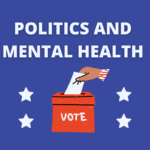Two profound lessons that many individuals take considerable time to understand are that thoughts are not facts and feelings are not facts. Engaging in reality testing can significantly help us recognize this truth, yet it is a skill that many people lack. These lessons can be particularly challenging because both our thoughts and feelings often attempt to persuade us otherwise. Additionally, numerous influences in the external world can reinforce these misconceptions. Developing the insight and wisdom to effectively contextualize our thoughts and feelings is essential for personal growth. This understanding is particularly crucial for those managing a mental illness like bipolar disorder, as real progress is often contingent upon recognizing that thoughts and feelings should not be mistaken for absolute truths. By properly reality-testing our thoughts and feelings, we can protect ourselves and those around us.
Understanding Why We Often Mistake Thoughts and Feelings for Facts
It is entirely natural to believe that our own thoughts are factual, as they form our primary frame of reference. Our thoughts originate from within us and often dominate our mental landscape, accompanying us throughout our lives. Given this intimate relationship, it is unsurprising that we perceive our thoughts as inherently true. This belief can lead to distorted perceptions about reality, impacting our decision-making and emotional well-being.
Similarly, feelings can be so intense that they create an overwhelming sense of reality, making it difficult for us to comprehend that our feelings are not objective truths. For instance, if we experience anger, we might interpret it as evidence that there is something genuinely wrong. Similarly, feelings of sadness can lead us to conclude that our circumstances are indeed bleak. This misunderstanding of feelings often clouds our judgment, making it essential to learn how to navigate these powerful emotions.
Recognizing the Challenges of Disassociating Thoughts from Facts
Most individuals can grapple with the notion that their thoughts may not always represent reality. For example, we might initially think we possess expertise in a subject, but an encounter with a knowledgeable individual can provide us with a fresh perspective that challenges our assumptions. New information can prompt a reevaluation of our beliefs, allowing us to adopt more accurate viewpoints. An excellent example of this is someone thinking they are not a pet person until they find themselves developing a bond with a cat, which could change their outlook entirely.
However, there are instances in which individuals cling to certain beliefs despite overwhelming evidence to the contrary. Consider someone harboring racist thoughts; no matter the experiences or interactions they have, their conviction in their superiority often remains unshaken. To them, these beliefs are facts, impervious to rational arguments or evidence that contradicts their worldview.
On a more relatable level, consider someone who harbors strong negative feelings toward a particular politician. Regardless of any positive actions taken by that individual, the belief that everything they do is inherently wrong may persist. This mindset can extend to entire political parties, demonstrating how deeply ingrained our thoughts can become, often leading us to treat them as absolute truths.
While we may naturally assume our thoughts are grounded in reality, this is often not the case. Our tendency to treat our thoughts as factual can lead to a myriad of problems, affecting our relationships and mental well-being.
The Prevalence of Mistaking Feelings for Facts in Our Lives
During the run of The Colbert Report, Stephen Colbert made the term “truthiness” widely recognized. According to the Merriam-Webster Dictionary, truthiness refers to:
“a truthful or seemingly truthful quality that is claimed for something not because of supporting facts or evidence but because of a feeling that it is true or a desire for it to be true”
This concept perfectly illustrates how feelings can distort our perceptions. For example, one might feel that illegal immigrants are responsible for crime and societal issues. This belief often lacks supporting evidence and is rooted in a feeling of fear or resentment rather than facts.
Addressing deeply held feelings can be incredibly challenging; facts often struggle to penetrate our emotional defenses. No matter how much evidence we present regarding immigration trends, the emotional conviction that illegal immigrants are criminals may drown out logical reasoning. This illustrates how our feelings can lead us to reject objective truths, perpetuating a cycle of misunderstanding.
The Importance of Critical Thinking: Distinguishing Between Thoughts, Feelings, and Facts
It is crucial to acknowledge that both thoughts and feelings do not equate to facts. While they may inform our beliefs, only some of our beliefs are grounded in objective reality. Engaging with data can greatly enhance our understanding of reality, yet few individuals take the time to examine their thoughts and feelings critically.
The art of critical thinking is essential for evaluating the accuracy of our mental narratives, yet it is not a skill that is widely taught in schools. Even at higher education levels, many students leave without fully developing the ability to question and analyze their thoughts. This lack of critical thinking skills can lead to distorted perceptions and beliefs that are not rooted in reality.
The Impact of Misunderstanding Thoughts and Feelings on Mental Health
Individuals grappling with mental illness often fall prey to cognitive biases that can exacerbate their conditions. For instance, a person suffering from depression may hold onto harmful beliefs that significantly distort their self-image and worldview. They may genuinely believe that they are a burden to others, despite evidence indicating otherwise. These erroneous thoughts can lead to devastating consequences, including suicidal ideation.
I often remind individuals struggling with depression that it can distort their reality, whispering falsehoods that they may believe wholeheartedly. This perspective encourages them to distance themselves from their illness, recognizing that their thoughts and feelings do not always reflect the truth.
By fostering this sense of individuation, individuals can develop the critical thinking skills necessary to evaluate their beliefs against reality. This cognitive process can be life-saving, and it is my hope that more people learn to engage in such critical evaluations to protect their mental health.
Practical Strategies for Reality-Testing Your Thoughts and Feelings
While the discussion surrounding reality testing is enlightening, one may wonder how to apply these principles, especially during a bipolar episode. If you are experiencing psychosis, it may be challenging to discern reality, highlighting the urgency of seeking professional help.
However, if you are not in such a severe state, there are several practical strategies you can utilize to reality-test your thoughts and feelings:
- Assess how others are perceiving a situation: Compare your thoughts and feelings with those expressed by others.
- Evaluate the evidence supporting your thoughts: Can you identify concrete facts that validate your beliefs?
- Reflect on past experiences: Have you held similar thoughts or feelings during periods of mental instability? How do they compare to your thoughts when you’re well?
- Consider the potential harm of your thoughts: Are your feelings leading to harm for yourself or others? Is this harm justified?
- Consult trusted individuals: Seek feedback from people you trust about the validity of your thoughts and feelings.
These reality-testing techniques are often integrated into therapies such as cognitive behavioral therapy (CBT) and dialectical behavior therapy (DBT). Working with a therapist can provide valuable support as you develop these essential skills. (Here’s a worksheet that may assist you in the meantime, though I don’t endorse it; simply offering it as a resource.)
It’s important to understand that your thoughts and feelings are indeed real, but they may not always be accurate. Acting based on distorted perceptions can lead to significant mistakes, potentially jeopardizing your well-being. Therefore, engaging in reality-testing is crucial for maintaining mental health and ensuring informed decision-making.
Have you ever found yourself struggling to differentiate between your thoughts and feelings? I encourage you to share your experiences in the comments!
Explore More Articles That May Interest You













